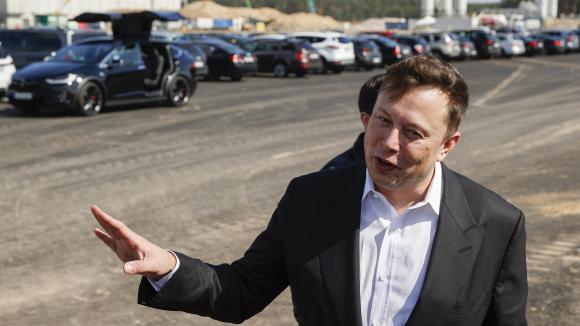Automotive: Elon Musk struggles to revolutionize batteries
The boss of the automobile company Tesla promises batteries of a new kind, more efficient and more ecological.
 |
It is in front of an audience of spectators gathered in the open air in a parking lot, each in their Tesla car, that Elon Musk made his show, Tuesday evening in California. The event, dubbed Battery Day, was long overdue.
While an electric vehicle boom is expected by 2030, Elon Musk wants to reinvent batteries that are expensive, pollute to produce and difficult to recycle. It is therefore announcing new batteries for the future based on several technological innovations, such as the replacement of cobalt by nickel and the graphite of the anodes by silicon.
With these technical improvements, Tesla hopes to be able to halve the price of batteries, manufacture them in-house without depending on external suppliers (Panasonic) and thus lower the selling price of its electric vehicles by 10,000 dollars. On the other hand, no revolution in terms of autonomy or battery life. So these announcements by Elon Musk still leave observers a little unsatisfied.
The battery, the sinews of the electric car
The issue of batteries has become central in the transformation of the automotive industry towards electricity. An industrial issue. However, currently, the battery market and innovation in this area is dominated by Asian countries. According to a study by the European Patent Office and the International Energy Agency, the number of patents has exploded in recent years but these patents come mainly from Korean manufacturers Samsung and LG, and Japanese Panasonic. The United States and Europe are far behind. In Europe, Germany is in the lead but France is the second most innovative country.
On the battery production side, it is the general mobilization, with the multiplication of announcements of new factories. There is a lot of talk about the Airbus battery, which is probably easier said than done. Europe hopes to drop from less than 1% of world production today to 17% within ten years.



